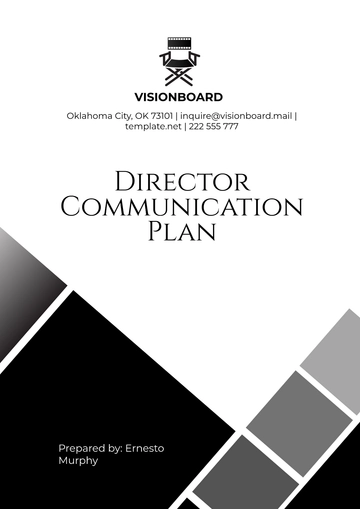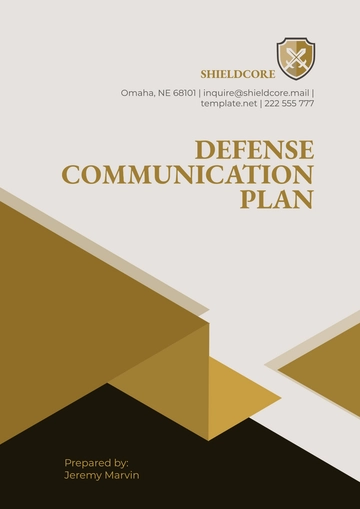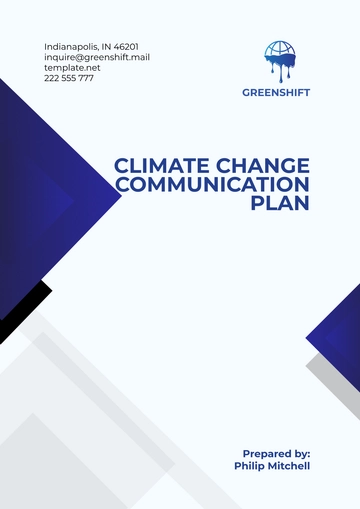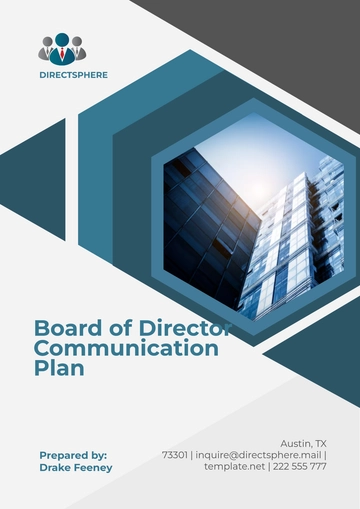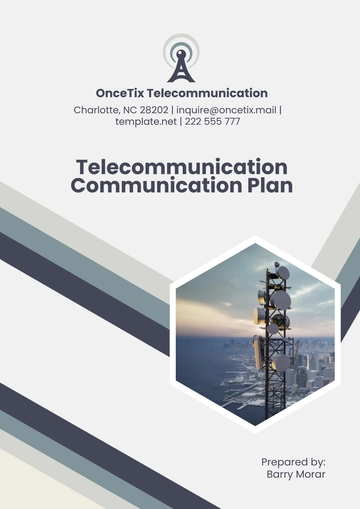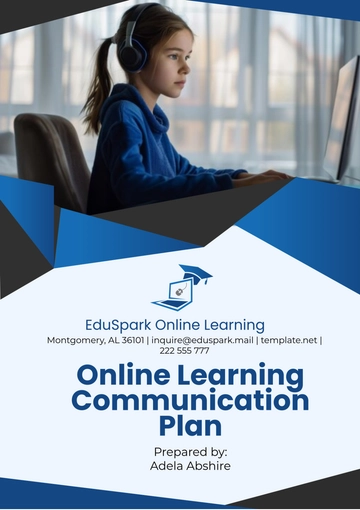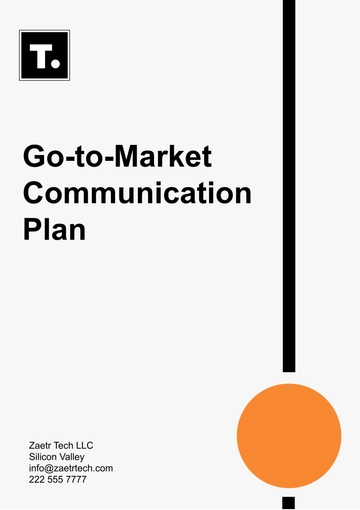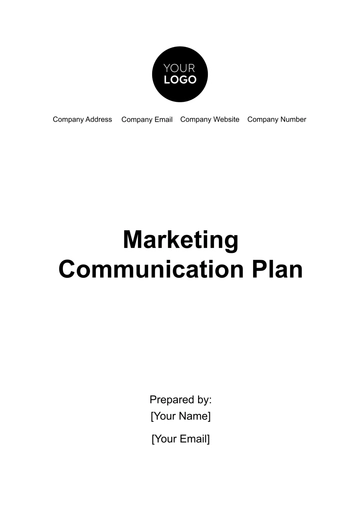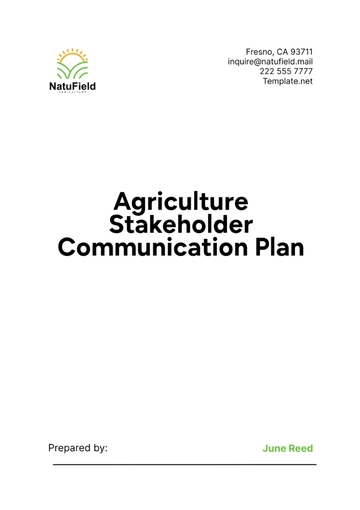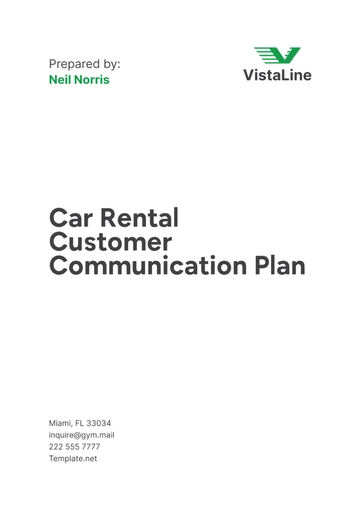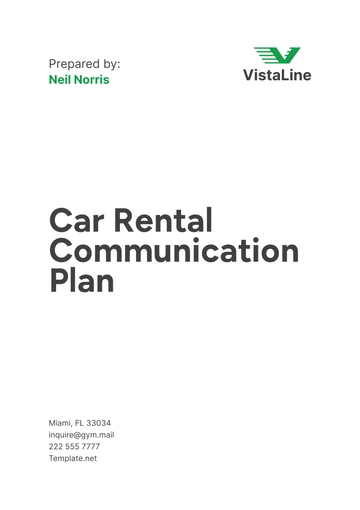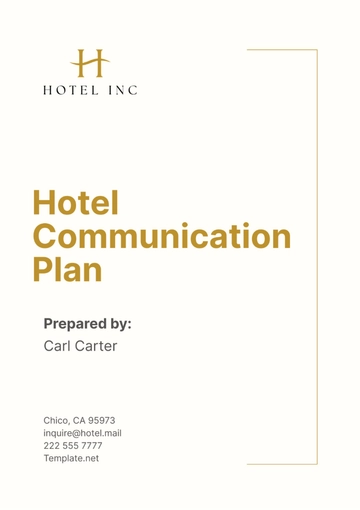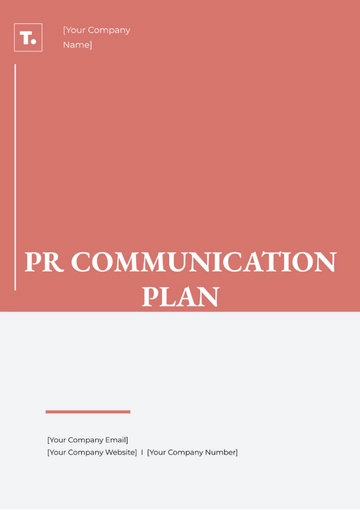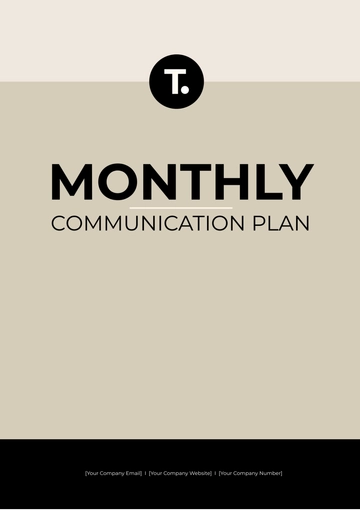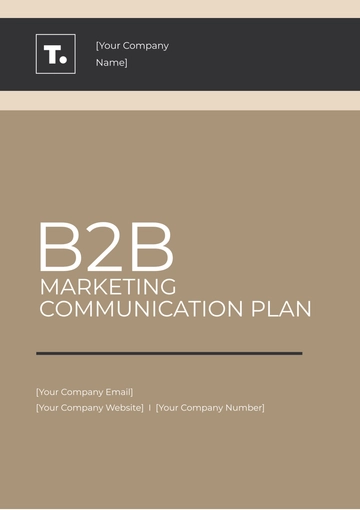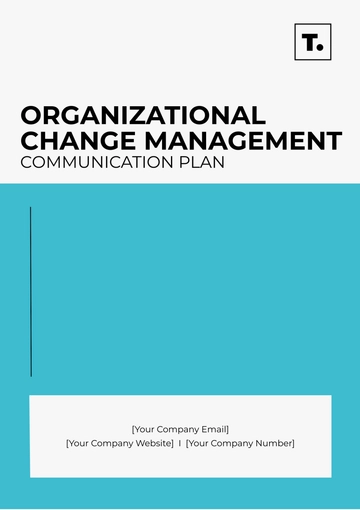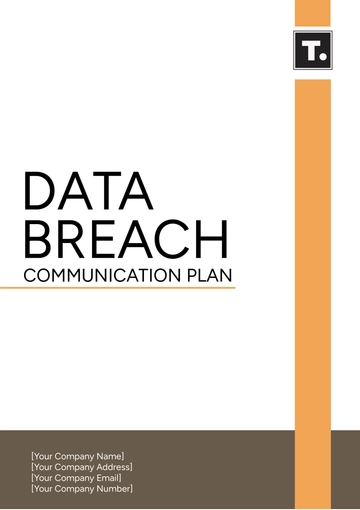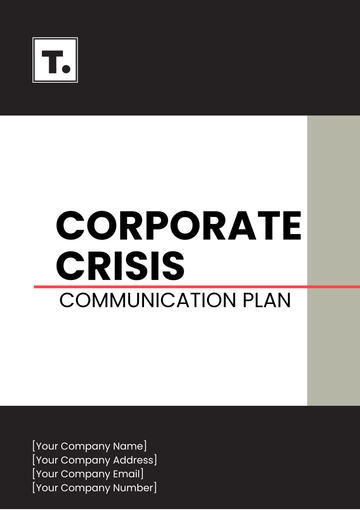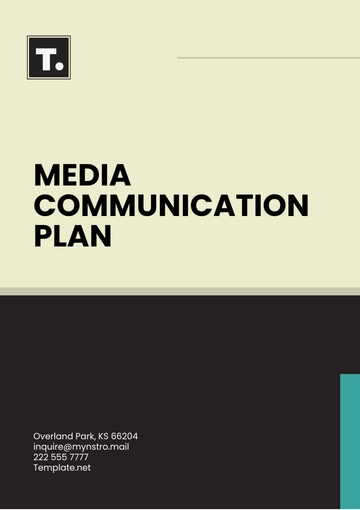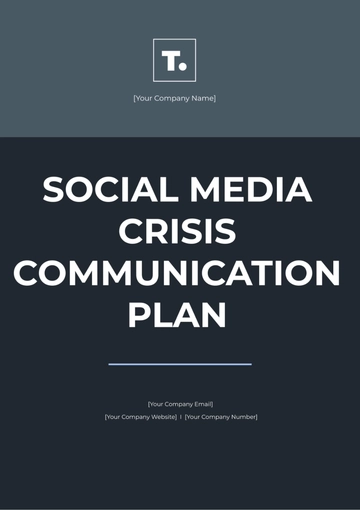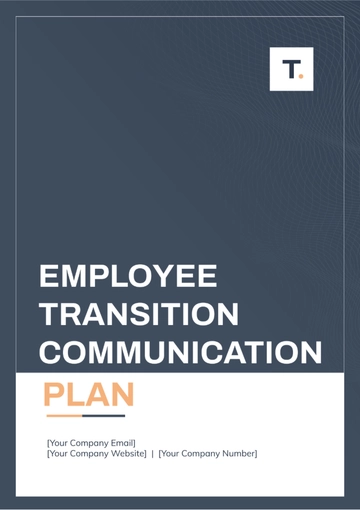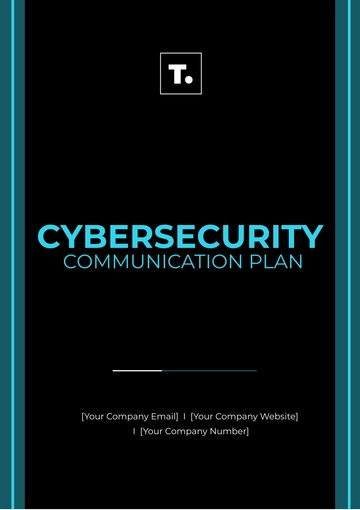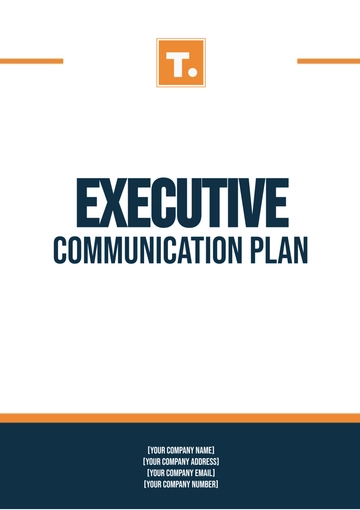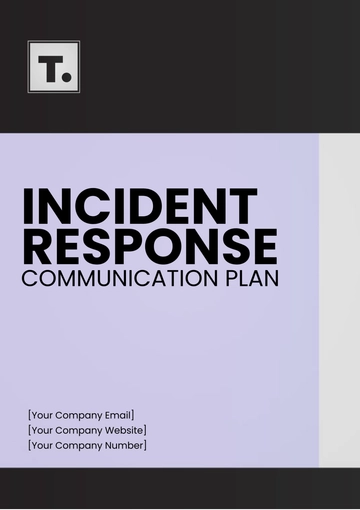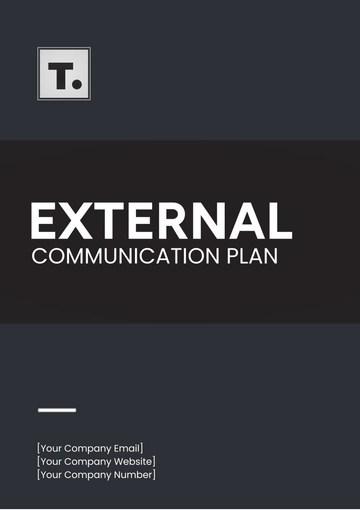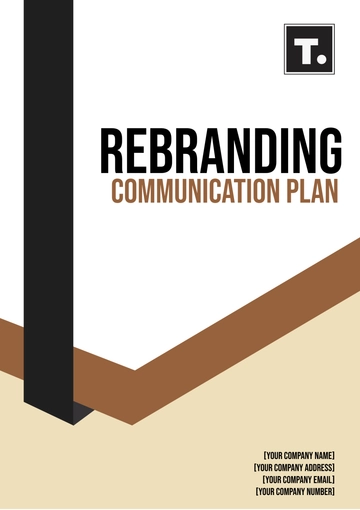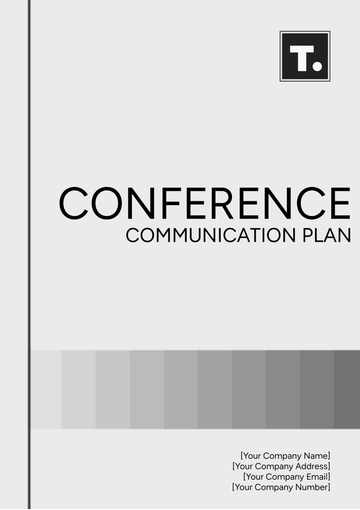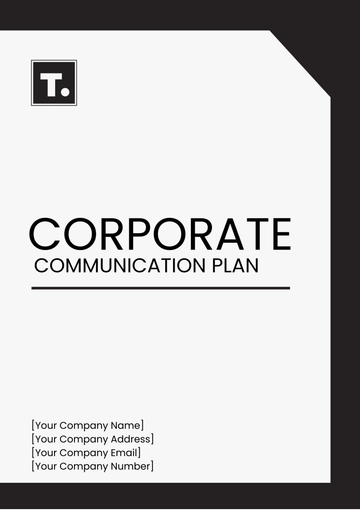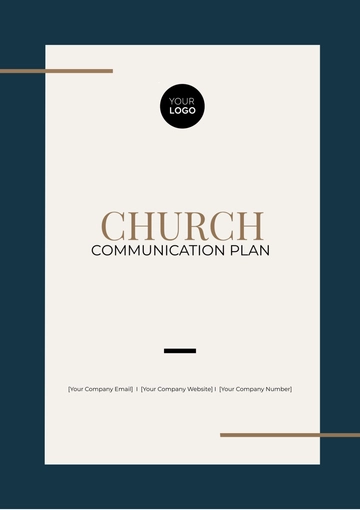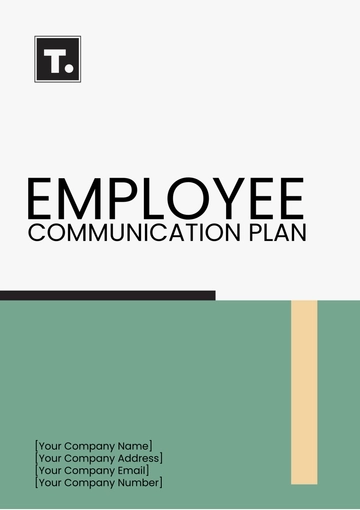Free Conference Communication Plan
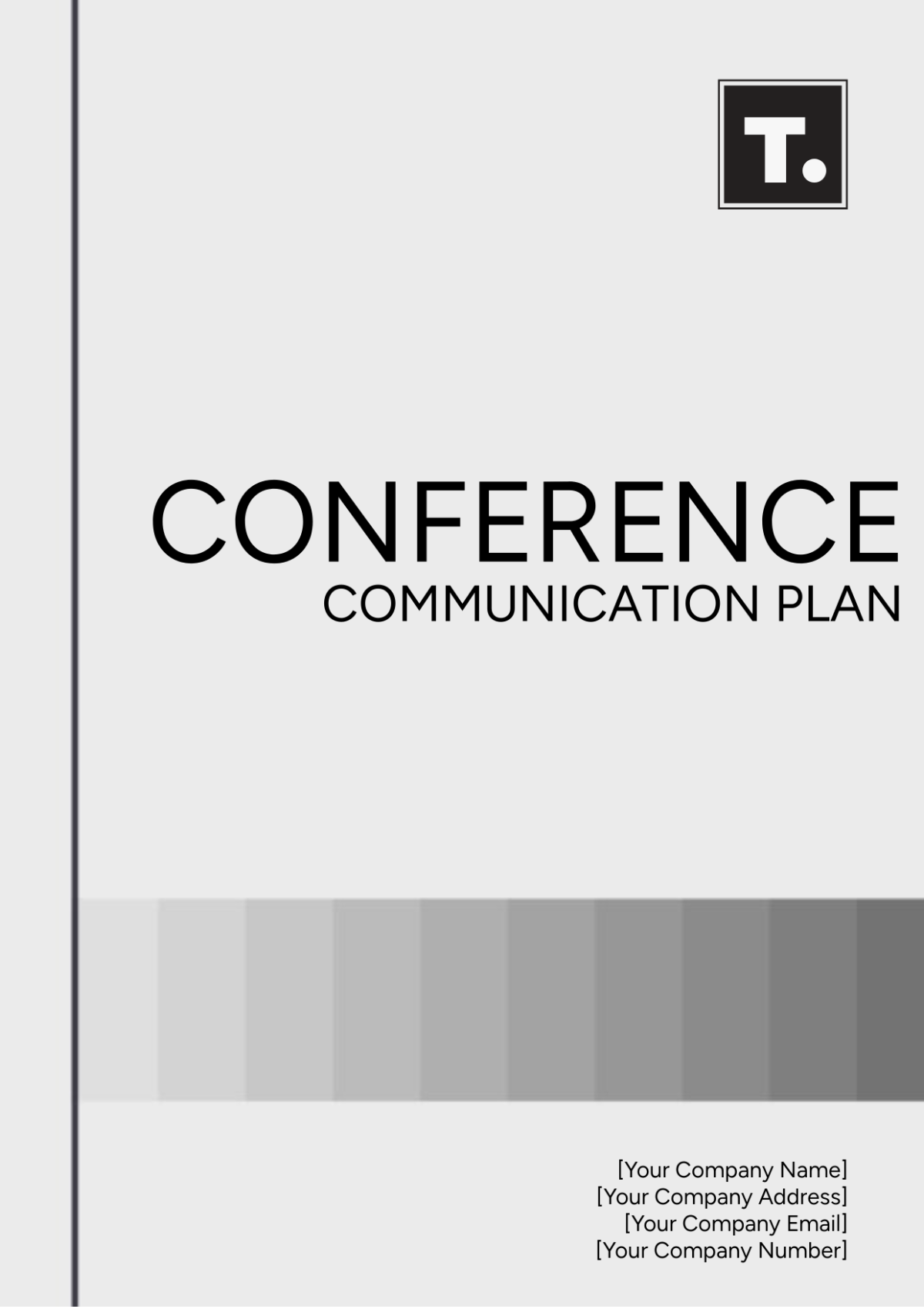
Prepared by: [Your Name]
I. Conference Details
Conference Name: [Conference Name]
Conference Date: [Date]
Location: [Venue]
Contact Number: [Contact Number]
Event Email: [Email Address]
Event Website: [Website URL]
II. Introduction
The Conference Communication Plan outlines the strategies and approaches for effectively communicating with stakeholders before, during, and after the conference. This comprehensive plan aims to ensure clear, consistent, and engaging communication to maximize attendee participation, satisfaction, and overall success of the event.
III. Conference Objectives
To inform stakeholders about the conference objectives, agenda, speakers, and logistical details.
To provide channels for communication and support during the conference, facilitating problem resolution and ensuring a seamless experience for attendees.
To collect feedback from participants and stakeholders to evaluate the conference's effectiveness and identify areas for improvement.
IV. Key Messages
Purpose of the Conference: Clearly communicate the conference's goals, themes, and intended outcomes to all stakeholders.
Value Proposition: Highlight the unique benefits and opportunities that the conference offers to attendees, such as networking, learning, and professional development.
Logistical Information: Provide comprehensive details about the conference schedule, agenda, venue, accommodations, transportation, and other important logistics.
Speaker and Session Highlights: Showcase the expertise and topics covered by conference speakers and sessions to generate interest and excitement.
Engagement Opportunities: Promote interactive elements of the conference, such as workshops, Q&A sessions, networking events, and social media engagement.
V. Audience Segmentation
Potential Attendees: Individuals who may be interested in attending the conference, including professionals, students, academics, and industry experts.
Confirmed Attendees: Individuals who have registered and confirmed their attendance at the conference.
Speakers: Experts and thought leaders who will be presenting at the conference.
Sponsors: Organizations or companies providing financial or in-kind support for the conference.
Vendors and Exhibitors: Companies or individuals showcasing products or services at the conference.
Venue Staff: Personnel responsible for managing the conference venue and facilities.
VI. Communication Channels
Communication Channel | Description |
|---|---|
Conference Website | A dedicated website providing comprehensive information about the conference, including agenda, speakers, and registration details. |
Email Campaigns | Targeted email campaigns to potential and confirmed attendees, sponsors, speakers, and exhibitors, providing updates, reminders, and important information. |
Social Media | Active presence on social media platforms to engage with the conference community, share announcements, promote sessions, and facilitate networking. |
Press Releases | Distribution of press releases to announce key milestones, such as speaker lineup, agenda updates, and sponsorship opportunities, to media outlets and industry publications. |
Printed Materials | Production of printed materials, such as brochures, flyers, and programs, distributed at the conference venue to provide on-site information to attendees. |
Mobile App | Development of a mobile app for the conference, offering features such as agenda customization, session reminders, interactive maps, and networking tools. |
VII. Timing and Frequency
Pre-Conference: Regular communication leading up to the conference to build anticipation, provide updates, and encourage registration.
During Conference: Real-time updates and announcements during the conference to guide attendees, highlight sessions, and address any issues or changes.
Post-Conference: Follow-up communication after the conference to express appreciation, gather feedback, share resources, and provide information about future events.
VIII. Roles and Responsibilities
Role | Responsibilities |
|---|---|
Conference Chair | Overall coordination and oversight of the conference communication plan, ensuring alignment with objectives. |
Communications Team | Development and execution of communication strategies, including content creation, distribution, and engagement across channels. |
Event Managers | Logistics coordination, venue management, and on-site support to ensure seamless execution of communication plan. |
IT and Technical Team | Development and maintenance of digital platforms, such as conference website and mobile app, to facilitate communication and engagement. |
Speakers and Sponsors | Collaboration with conference organizers to promote their involvement and maximize visibility and engagement. |
IX. Feedback Mechanisms
Surveys: Distribution of post-conference surveys to attendees, speakers, sponsors, and exhibitors to gather feedback on their experience and suggestions for improvement.
Social Media Monitoring: Monitoring social media channels during and after the conference to track sentiment, engagement, and conversations related to the event.
Email Feedback: Encouraging recipients of post-conference emails to provide feedback directly via email or through designated feedback forms.
X. Conclusion
This Conference Communication Plan serves as a roadmap for effectively engaging stakeholders and ensuring the success of the event. By implementing clear messaging, utilizing diverse communication channels, and fostering collaboration among stakeholders, we aim to create a memorable and impactful conference experience for all participants. Continuous evaluation and feedback will inform future iterations of the communication plan, enabling us to adapt and improve with each conference cycle.
- 100% Customizable, free editor
- Access 1 Million+ Templates, photo’s & graphics
- Download or share as a template
- Click and replace photos, graphics, text, backgrounds
- Resize, crop, AI write & more
- Access advanced editor
Organize successful events with ease using our Conference Communication Plan Template. Ideal for event planners and organizers, it offers a comprehensive framework for managing communication before, during, and after conferences. Customizable and downloadable, it ensures seamless coordination and engagement with attendees, speakers, and sponsors. Editable in our AI Editor Tool, this template by Template.net streamlines conference planning and execution, maximizing the impact of your events.
